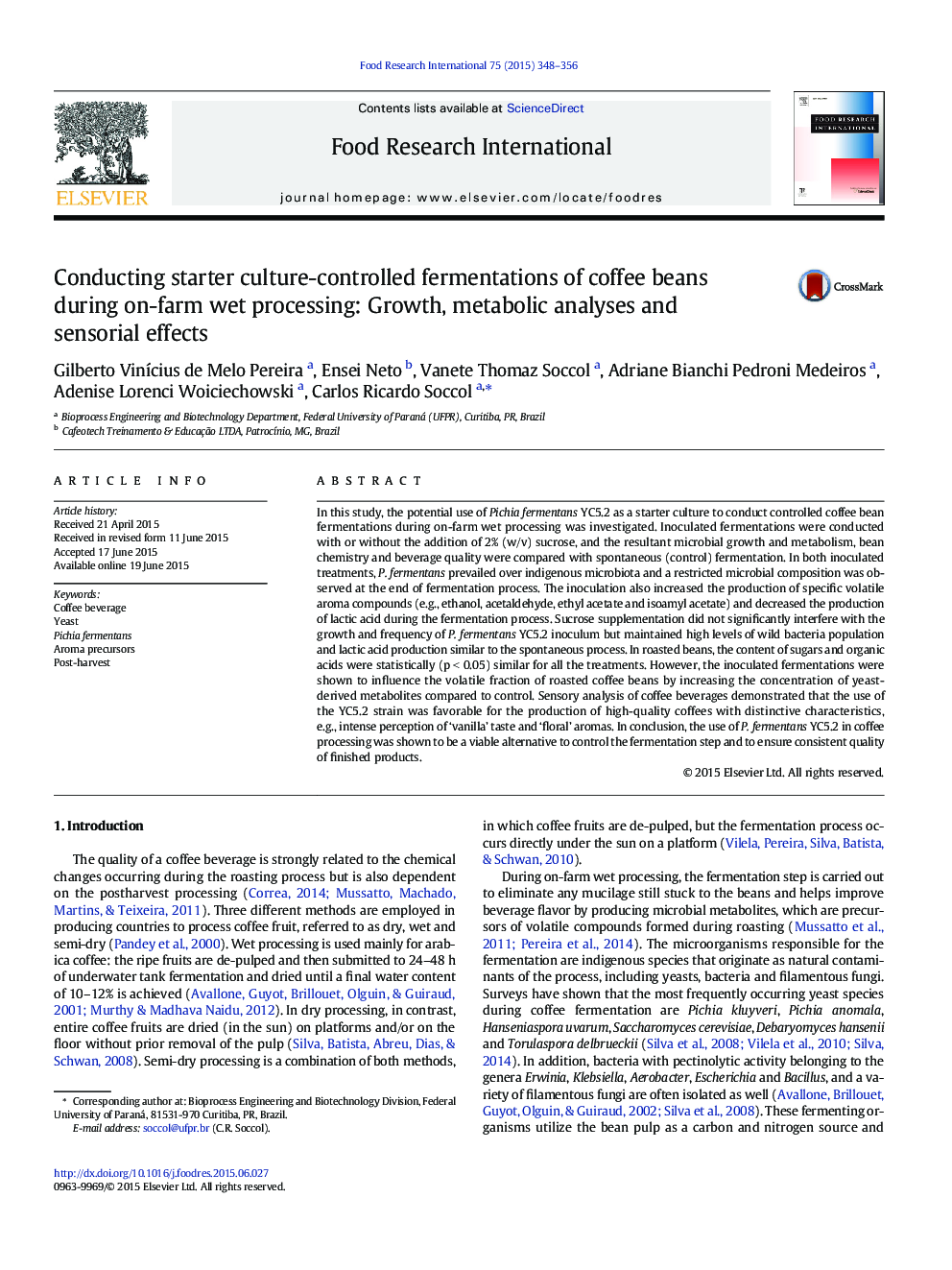| Article ID | Journal | Published Year | Pages | File Type |
|---|---|---|---|---|
| 6395395 | Food Research International | 2015 | 9 Pages |
Abstract
In this study, the potential use of Pichia fermentans YC5.2 as a starter culture to conduct controlled coffee bean fermentations during on-farm wet processing was investigated. Inoculated fermentations were conducted with or without the addition of 2% (w/v) sucrose, and the resultant microbial growth and metabolism, bean chemistry and beverage quality were compared with spontaneous (control) fermentation. In both inoculated treatments, P. fermentans prevailed over indigenous microbiota and a restricted microbial composition was observed at the end of fermentation process. The inoculation also increased the production of specific volatile aroma compounds (e.g., ethanol, acetaldehyde, ethyl acetate and isoamyl acetate) and decreased the production of lactic acid during the fermentation process. Sucrose supplementation did not significantly interfere with the growth and frequency of P. fermentans YC5.2 inoculum but maintained high levels of wild bacteria population and lactic acid production similar to the spontaneous process. In roasted beans, the content of sugars and organic acids were statistically (p < 0.05) similar for all the treatments. However, the inoculated fermentations were shown to influence the volatile fraction of roasted coffee beans by increasing the concentration of yeast-derived metabolites compared to control. Sensory analysis of coffee beverages demonstrated that the use of the YC5.2 strain was favorable for the production of high-quality coffees with distinctive characteristics, e.g., intense perception of 'vanilla' taste and 'floral' aromas. In conclusion, the use of P. fermentans YC5.2 in coffee processing was shown to be a viable alternative to control the fermentation step and to ensure consistent quality of finished products.
Related Topics
Life Sciences
Agricultural and Biological Sciences
Food Science
Authors
Gilberto VinÃcius de Melo Pereira, Ensei Neto, Vanete Thomaz Soccol, Adriane Bianchi Pedroni Medeiros, Adenise Lorenci Woiciechowski, Carlos Ricardo Soccol,
